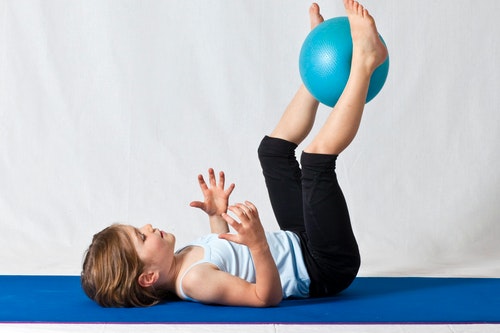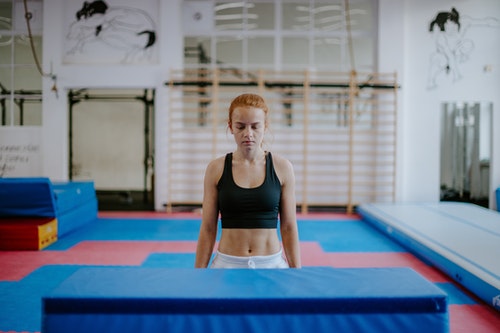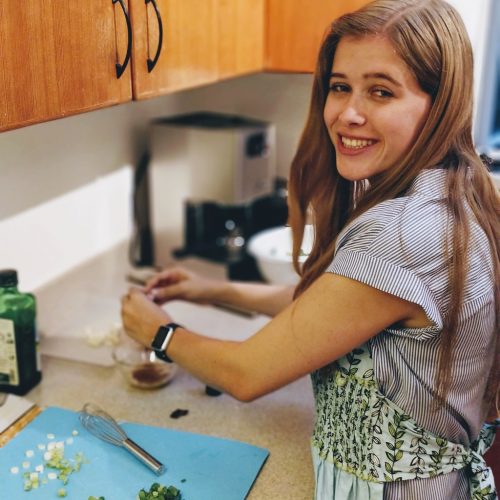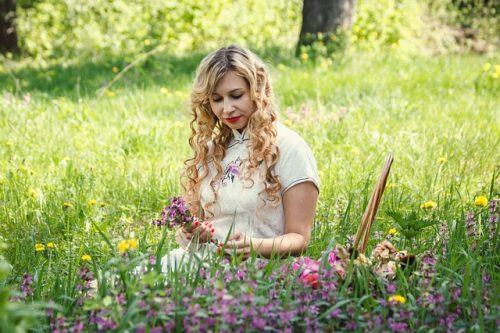Do you have mental health disorders?

The first time that Jenny, my younger sister, watched young gymnasts perform at my elementary school, she was only three years old. According to my parents, it was the only time my sister remained seated for an hour ever since she learned how to walk. She could not take her eyes off the kids who were twirling and tumbling and doing splits on the mat while dancing to the upbeat song on the background.
After that performance, we thought that Jenny would forget about it at once and show her curiosity in other things. However, while the entire family watched the gymnastics competition in the Olympics via satellite, she started trying to copy the gymnasts, from their elegant stance to their basic routines. When Jenny was not rolling and tumbling in our living room, she would be sitting in front of the TV, obviously amazed by the athletes from different countries.

Since my parents noticed Jenny’s interest in gymnastics, they asked the gymnastics teacher at the local center if they would allow her to sit in the class. I remembered picking her up from class with Mom once and seeing that she was the youngest and smallest student there. To everyone’s surprise, though, Jenny was a natural gymnast. She did everything that she saw the older kids doing; there was no sign of shyness from her at all. After the first recital, we heard Jenny say, “I will be a professional gymnast when I grow up.”
A Rising Gymnast
One year later, Jenny has officially enrolled in the gymnastics class. Mind you; she was four years old at the time. The teacher typically allowed seven-year-olds to register, but she exempted my sister from the rule because of her evident talent.

Three times a week, Jenny would go to the gym to walk and jump on beams and learn how to do front and backflips properly. It did not seem like those activities were challenging when she was doing them because she was always smiling. But we had seen other kids fall and struggle to improve their gymnastic skills, so it became apparent that my little sister might genuinely be meant to grow up as a gymnast.
This routine of driving Jenny to gymnastics class a few times a week went on for another year. We thought she would get bored with the activity after a year, but she showed no sign of that. She seemed as healthy as could be. With how things were going, no one would have expected she would be at risk for a mental health disorder.
If anything, my sister became eager to learn more moves and do competitive gymnastics soon. In truth, she already entered the Junior Olympics program and passed the first and second levels immediately. For Level 3, she had to wait until her sixth birthday to pass because that’s the minimum age requirement.
Jenny’s chance to compete finally came when she turned seven years old. There was a tournament in another city, and her gym wanted to send representatives to it. Since everyone was aware of my sister’s skills, she automatically got selected to compete against other Level 5 gymnasts. It became clearer that it was the right choice when she took home the gold after the competition. From then on, gymnastics became part of her daily life.

The Fall Of The Gymnast
My sister did not stop competing since then. She worked hard to pass all the junior levels until a national coach scouted her and asked my parents if they would allow Jenny to train as a competitive gymnast for the Olympics. Of course, that was the goal, so Jenny left her little gym and began training with other professional athletes for the 2016 Summer Olympics in Rio de Janeiro, Brazil.
Since one had to qualify for the Olympics, Jenny joined various gymnastics competitions throughout 2015. The training was brutal for an 18-year-old’s body, but she never complained. On top of that, she had to do homeschooling so that she would still graduate high school with the rest of her batch. My sister often said, “I don’t care how much I suffer from perfecting my moves. This is what I was meant to do in my life. I want to continue competing for as long as I can.” So, we continued to support her dreams, but little did we know she would be facing mental health problems soon.
Unfortunately, Jenny got into a freaky car accident with her friends. Their vehicle toppled over, and it was lucky that none of them died, but Jenny had to get metal pins to put her broken legs back together. Since a gymnast had to have strong legs and arms to do everything, her professional career came to an end before the Olympics. It was a traumatic event that ended her dreams, and put her at increased risk for having emotional health issues, psychological illness, or mental health disorders.

How I Almost Lost My Sister To A Mental Health Disorders
Jenny did not seem like the little sister that I used to have for months. After the accident, she became moody and unhappy, and it was a significant impairment for her at home. She even yelled at my parents for the first time when they tried to coax her to eat. We should have realized that it was more than just sadness. She was showing signs of eating disorders and other suspecting mental health disorders. Then, at night, we would hear her crying, most likely grieving over the loss of her dreams. Her depressed mood disorder was another sign of a mental disorder.
Mental Health Disorders
Our fears turned into reality when Mom found my sister passed out in bed with an empty bottle of sleeping pills in her hand. These weren’t recreational drugs. Her degrading mental health had push her to the most extreme form of self harm. We rushed her to the hospital, and the doctors luckily managed to pump the drugs out of her stomach. When Jenny woke up the next day, we were all crying hard, and she was saying sorry for trying to take her life. It turned out that she was so depressed for months, but she wanted to get mental health disorders counseling help and get her life back on track after what happened.
If you suspect that a loved one has mental health disorders, don’t wait for something grave to occur before you confront them about their mental health disorders. Learn to recognize the risk factors of mental health disorders.
Mental Health Disorders FAQs
What To Do If Your Sister Has Mental Health Disorders?
What Is The Impact Of Having A Sibling With Mental Illnesses or Disorders?
How Do People With Mental Health Disorders Cope?
How Do You Handle A Family Member With Mental Health Disorders?
How Do You Deal With A Sister With A Personality Problem?
How do you comfort someone with unstable mental health?
What is the impact of mental health disorders on the person and family?
What is the importance of family for individuals with mental health disorders?
Why is it important to take care of your mental health?
How do you explain mental health disorders to someone who doesn’t understand disorders?
How to deal with a family member who has mental health disorders and won’t get help?
How can you protect your mental health from toxic family members?
How do you interact with someone with a personality disorder?
How do you communicate with a mentally unstable person?
What kind of impact does mental disorders have on a person’s life?




